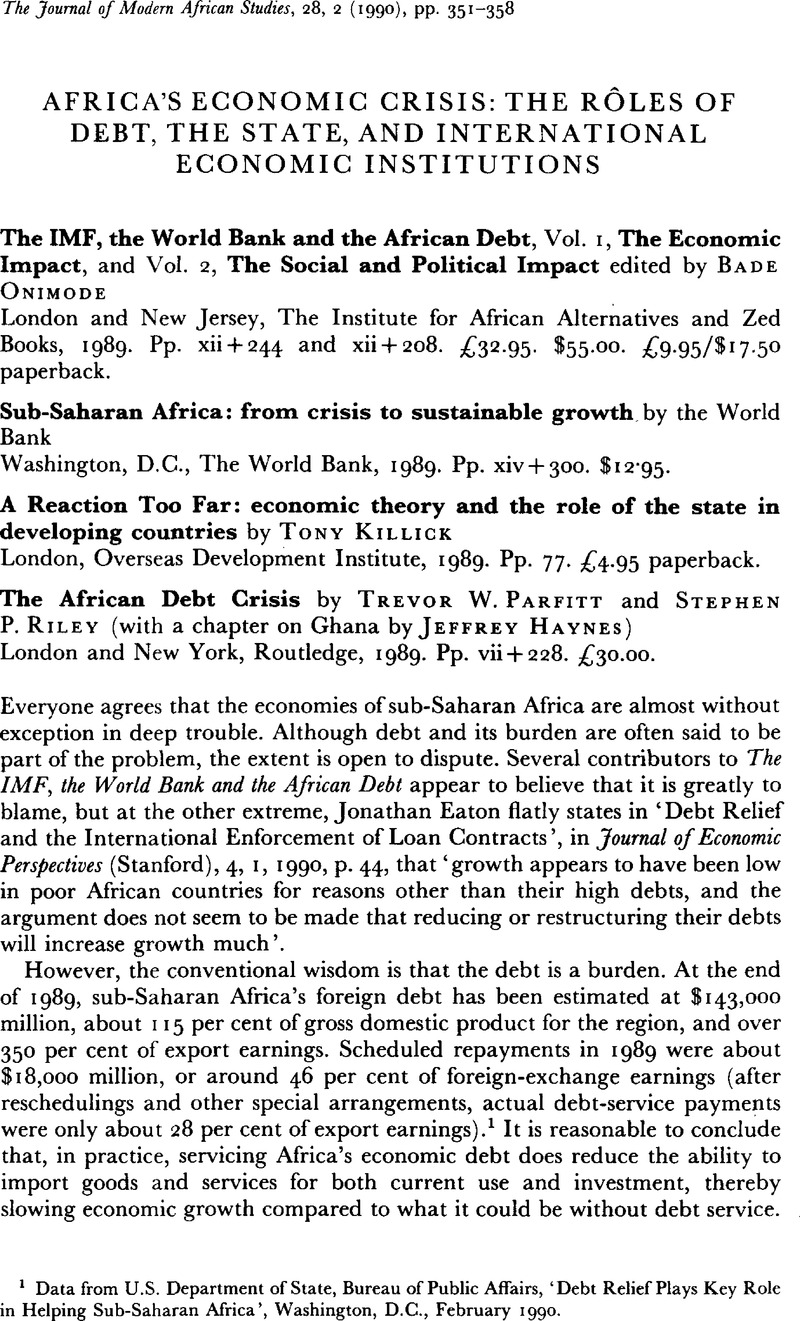Article contents
Africa's Economic Crisis: The Rôles of Debt, The State, and International Economic Institutions - The IMF, the World Bank and the African Debt, Vol. I, The Economic Impact, and Vol. 2, The Social and Political Impact edited by Bade Onimode London and New Jersey, The Institute for African Alternatives and Zed Books, 1989. Pp. xii + 244 and xii + 208. £32.95. $55.00. £9.95/$17.50 paperback. - Sub-Saharan Africa: from crisis to sustainable growth by the World Bank Washington, D.C., The World Bank, 1989. Pp. xiv + 300. $12.95. - A Reaction Too Far: economic theory and the role of the state in developing countries by Tony Killick London, Overseas Development Institute, 1989. Pp. 77. £4.95 paperback. - The African Debt Crisis by Trevor W. Parfitt and Stephen P. Riley (with a chapter on Ghana by Jeffrey Haynes) London and New York, Routledge, 1989. Pp. vii + 228. £30.00.
Published online by Cambridge University Press: 11 November 2008
Abstract

- Type
- Reviews
- Information
- Copyright
- Copyright © Cambridge University Press 1990
References
1 Data from U.S. Department of State, Bureau of Public Affairs, ‘Debt Relief Plays Key Role in Helping Sub-Saharan Africa’, Washington, D.C., February 1990.Google Scholar
2 Despite references in ch. 4 of Sub-Saharan Africa to rural infrastructure, institutions, and technology, primary emphasis is still placed on freeing markets and prices. However, the Proceedings of the World Bank Annual Conference on Development Economics, 1989, published as a supplement to The World Bank Economic Review (Washington, D.C., 1990), show considerable acceptance of low short-run supply elasticities from African agriculture, and the importance of rural infrastructure and marketing institutions. See especially, Hans Binswanger, ‘The Policy Response of Agriculture’, and comments by Avishay Braverman and Alberto Valdes, as well as by other participants.Google Scholar
- 1
- Cited by




